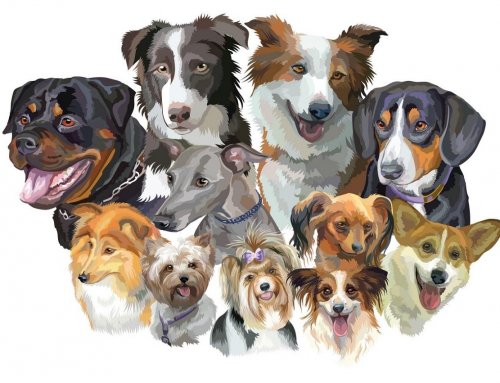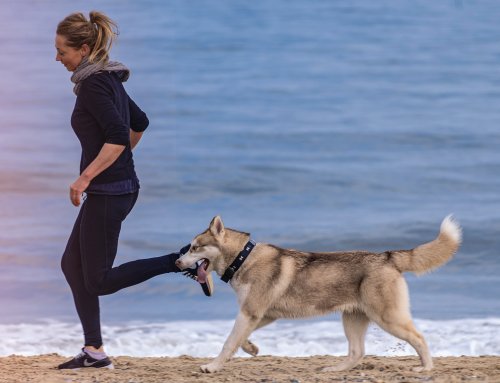After choosing a matching companion, one of the most common questions we see new puppy parents grapple with is, “What shall we call my dog?” Purchasing or adopting a gorgeous, loveable, and rambunctious ball of fur is exciting. But once in their custody, many dog owners don’t know what name to give.
Some are influenced by what’s on their screens. For example, many puppies got the name Stella, from the sitcom Modern Family. Other dog owners get inspiration from their interests. For example, in L.A, many dogs are called Kobe.
Of course, some owners go an extra step and do internet research to find a suitable and more creative dog name. But what should you consider when choosing a name for your furball?
Read on and learn more about the psychology behind naming your dog.
Be as Unique as Possible
The American Kennel Club allows 28 characters to create a formal title for your dog. It has to be unique. If you settle on a name that has already been used, then some of the character spaces will be filled using numbers to distinguish your dog from any other. In some cases, the first name registered by the kennel club name could be the breeder’s kennel name. So, you only have a choice on the subsequent names – including the dog’s call name.
Your dog’s call name is the one you frequently use when talking to them. Remember, a dog lives in a sea of human words. Apart from a few exceptional dogs, most have an understanding similar to a two-year-old.
The call name is the single-most important word your dog will ever learn. Therefore the call name should be distinguishable from other words the dog might overhear. Names like Snowie might sound perfect for your Siberian husky. But think of how confused your dog would be if you lived in an area that snowed during winter.
The Best Names are Easy-to-Pronounce and You Don’t Mind Repeating
Each time you want your dog to do something, you should start the command by mentioning their name.
According to the psychologist, Dr. Stanley Coren, starting a command with the dog’s name is essential for understanding. The dog’s name acts like a signal that tells him the next words should affect his behavior. For example, saying, “Fido sit” is more effective than “Sit Fido.”
Your dog’s name should be easy to pronounce and one that you don’t mind repeating. If you are a fan of philosophy, you may want to call your dog Confucius. But when you think about how often you will want to talk to your dog, you might want to twist it to something easy to repeat.
A Two-Syllable Name is Better
You’ve probably heard that two-syllable names are better for dogs. If you wonder why, because they are short and allow for inflection. Thus, it is easier to convey emotion. Popular dog names, like Rex, are brief and catchy. But the problem is they are also very halting. It sounds like the command “stop” or “sit.” You can’t do much with the name.
However, two-syllable names like Ruppert would allow you some flexibility. For example, it is easier to convey urgency, affection, or displeasure by changing the inflection of the syllables in the name Ruppert than it is with Rex.
Consider a Group Name if You Have More Than One Dog
If you have more than one dog in the house, you should consider coming up with a common name in addition to their specific names. Don’t sweat it because the name can be generic and doesn’t go into any register. It’s just meant to help you manage the dogs better.
For example, if you fancy military vocabulary, you could call your dogs troops. Or, if yours are a pack of small-breed females, you could call them “ladies.”
Group names are helpful, especially when you want to handle them collectively.
What to Avoid
There are some trends that you should avoid when naming your dog. For example, since the call name should be distinguishable, avoid giving your dog a generic title like “Doggie.” It’s like naming him “dog.”
Also, be careful when using common human names. Some people may take offense at sharing the name with a dog. Besides, your dog would be confused every time someone mentions it in a social gathering.
Other names to avoid would include words that could worsen stereotypes. For example, if you own a dog breed with a reputation for aggressive behavior, giving names like Killer or Brawler might aggravate the wrong perception.
A Final Word
I hope this 6 things help you better understand the basics of obtaining a puppy from a dog breeder.
As always, God bless and Go Tigers!
Keywords: dog breeders, akc breeder, siberian husky breeder, doberman pinscher breeder













